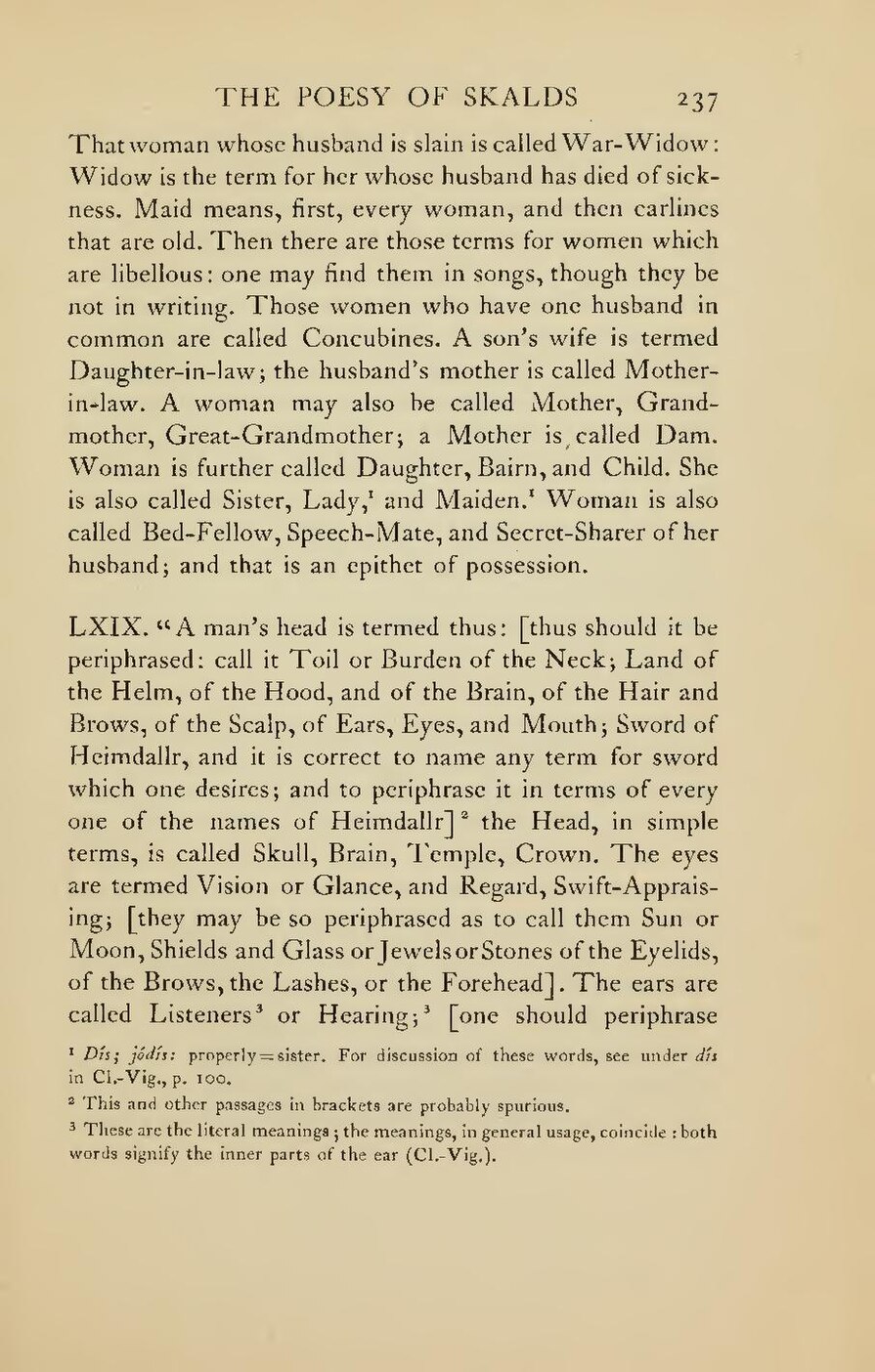That woman whose husband is slain is called War-Widow: Widow is the term for her whose husband has died of sickness. Maid means, first, every woman, and then carlines that are old. Then there are those terms for women which are libellous: one may find them in songs, though they be not in writing. Those women who have one husband in common are called Concubines. A son's wife is termed Daughter-in-law; the husband's mother is called Mother-in-law. A woman may also be called Mother, Grand mother, Great-Grandmother; a Mother is called Dam. Woman is further called Daughter, Bairn, and Child. She is also called Sister, Lady,[1] and Maiden.[1] Woman is also called Bed-Fellow, Speech-Mate, and Secret-Sharer of her husband; and that is an epithet of possession.
LXIX. "A man's head is termed thus: [thus should it he periphrased: call it Toil or Burden of the Neck; Land of the Helm, of the Hood, and of the Brain, of the Hair and Brows, of the Scalp, of Ears, Eves, and Mouth; Sword of Heimdallr, arid it is correct to name any term for sword which one desires; and to periphrase it in terms of every one of the names of Heimdallr][2] the Head, in simple terms, is called Skull, Brain, Temple, Crown. The eyes are termed Vision or Glance, and Regard, Swift-Appraising; [they may be so periphrased as to call them Sun or Moon, Shields and Glass or Jewels or Stones of the Eyelids, of the Brows, the Lashes, or the Forehead]. The ears are called Listeners[3] or Hearing;[3] [one should periphrase
- ↑ 1.0 1.1 Dís; jodís: properly = sister. For discussion of these words, see under dís in Cl.-Vig., p. 100.
- ↑ This and other pages in brackets are probably spurious.
- ↑ 3.0 3.1 These are the literal meanings; the meanings, in general usage, coincide: both words signify the inner parts of the ear (Cl.-Vig.).
